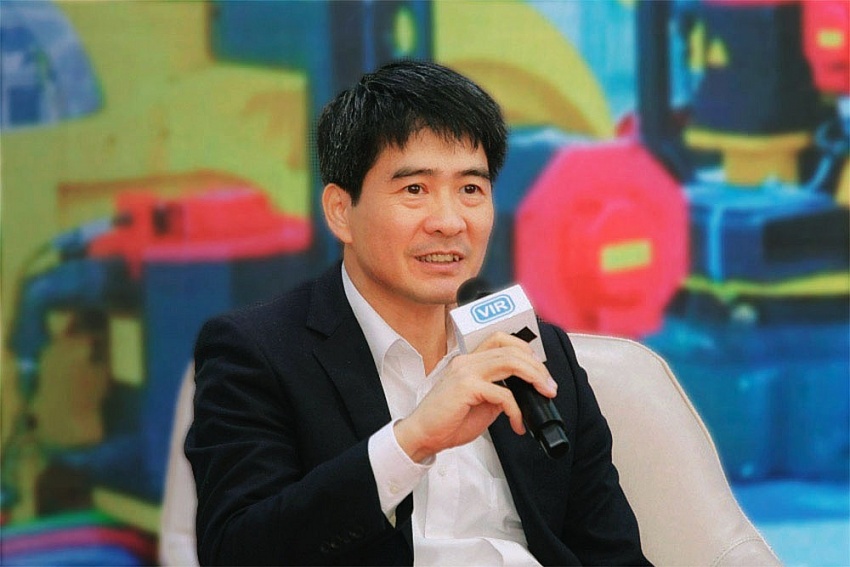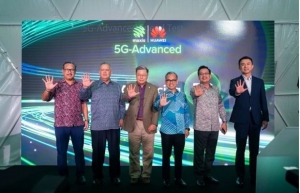Getting 5G off the ground this year
 |
| Nguyen Phong Nha, deputy general director of the Authority of Telecommunications under the Ministry of Information and Communications |
2024 was coined the year of commercialisation of 5G nationwide, but network operators still hesitate to carry this out for a number of reasons. How can the industry ensure the success of the plan?
Up to now, each network operator has its own 5G development strategy and 5G commercialisation plan in accordance with the general development situation of the market.
The deployment of 5G commercialisation depends on many factors. In addition to factors from mobile businesses such as investment efficiency, service output, device ecosystem, and others, a prerequisite for businesses to commercialise 5G in Vietnam is to be granted a licence to use the planned frequency band for 5G deployment and the amount of this frequency resource is limited.
Therefore, owning frequency bands for the 5G deployment will be the deciding factor in 5G investment and development orientation when it is eventually commercialised. Frequency band is owned through auction. Businesses will have to balance between costs of frequency band licensing and network infrastructure development investment costs.
But if businesses do not participate in the auction, no matter how much capital they have, once all frequency band resources are allocated, they will not be able to deploy 5G.
In the current context, 5G investment requires large capital resources and is related to the investment mechanism and operation of each business. Therefore, effective 5G deployment is not only a matter of technology readiness but also depends on the development strategy and business strategy of each enterprise.
The commercialisation of 5G will follow the principle of developing telecommunications infrastructure first, and licensing 5G bands for businesses is the basis for businesses to decide on deploying 5G infrastructure according to a roadmap consistent with each business’s production and business plan.
In addition, the commercialisation of 5G based on auctioning rights to use the 5G frequency band also ensures competitiveness and position of businesses, creating resonance and common motivation for mobile service development in general and 5G in particular, while increasing revenue for the state budget.
This year is considered a good time for deployment of 5G service businesses because Vietnam’s digital economy is developing strongly. How can commercialisation promote digital economic development?
5G is the foundation technology, and the digital infrastructure to develop the digital economy. For users, 5G with high broadband mobile service access speeds will boost data consumption, and will promote the development of fields such as communications, social networks and others.
With the features of low latency and high connection density, 5G in Vientam will improve the efficiency of production and processing sectors, and attract high-tech initiatives.
Recently, Malaysia successfully tested a 5.5G network, becoming the first country in Southeast Asia to successfully do so. Does Vietnam have any plans for deploying and developing infrastructure for this technology in the near future?
Technology must have specific standards which are assessed and acknowledged by the International Telecommunications Union (ITU). But in reality, it must also have frequency bands, bandwidth, technical specifications, signal levels, types of devices, and specific testing applications. Currently, the ITU takes up the 5G concept only.
In Vietnam, businesses are participating in the frequency band auction process to deploy 5G services and applications according to releases suitable for Vietnam. In the long term, to be able to own new technology, it is necessary to cooperate internationally, invest in training human resources, and laboratories for testing, and create policies and mechanisms to encourage the training of technical manpower and international level invention, among various other measures.
 | How telecoms law facilitates commercialisation for 5G One of the key objectives of the National Digital Transformation Programme towards 2025 is the widespread availability of 5G mobile network services. Consequently, facilitating the early commercialisation of 5G mobile networks is outlined as one of the tasks to establish this. |
 | Malaysia successfully tests first 5.5G technology in Southeast Asia Maxis, one of the oldest and largest telecommunications companies in Malaysia, announced on February 23 that it and Chinese tech giant Huawei have successfully staged the first 5G-Advanced technology trial in Malaysia and Southeast Asia. |
 | Vietnam, Ericsson enhance cooperation in digital infrastructure Vietnam and Ericsson will strengthen cooperation in developing digital infrastructure, applications, platforms, and promoting digital economy development. |
 | Sustainability for long-term value creation Ericsson was founded on the belief that communication is a basic human need and with a vision to change people’s lives. And for over 145 years, the company has played a critical role in transforming lives, industries, and society for the better. The company puts focus on embedding sustainability programmes and practices across the organisation to create unimaginable opportunities and deliver positive impact to stakeholders. |
What the stars mean:
★ Poor ★ ★ Promising ★★★ Good ★★★★ Very good ★★★★★ Exceptional
Related Contents
Latest News
More News
- A golden time to shine within ASEAN (February 19, 2026 | 20:22)
- Vietnam’s pivotal year for advancing sustainability (February 19, 2026 | 08:44)
- Strengthening the core role of industry and trade (February 19, 2026 | 08:35)
- Future orientations for healthcare improvements (February 19, 2026 | 08:29)
- Infrastructure orientations suitable for a new chapter (February 19, 2026 | 08:15)
- Innovation breakthroughs that can elevate the nation (February 19, 2026 | 08:08)
- ABB Robotics hosts SOMA Value Provider Conference in Vietnam (February 19, 2026 | 08:00)
- Entire financial sector steps firmly into a new spring (February 17, 2026 | 13:40)
- Digital security fundamental for better and faster decision-making (February 13, 2026 | 10:50)
- Aircraft makers urge out-the-box thinking (February 13, 2026 | 10:39)

 Tag:
Tag:













 Mobile Version
Mobile Version